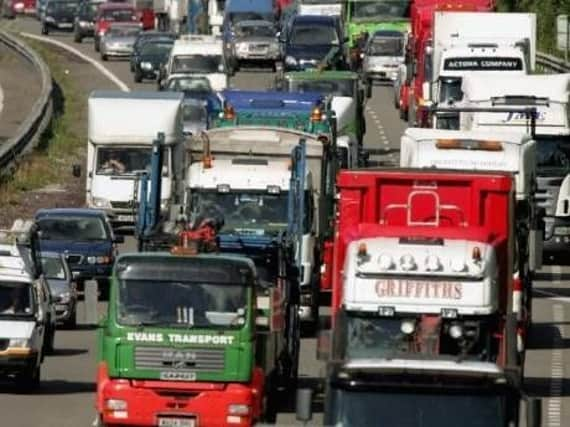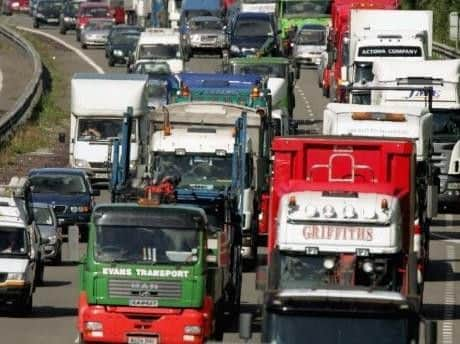Calls to hasten advent of cleaner vehicles


Environmental campaign groups called upon commercial companies shifting goods across the country to invest more on electric and clean vehicles.
New Department for Business, Energy and Industrial Strategy figures show road transport in Wigan consumed 138,181 tonnes of oil in 2017: four per cent lower than in 2012. Commercial transport accounted for 35 per cent of oil consumption and its demand for petrol and diesel rose six per cent to 47,878 tonnes in 2017.
Advertisement
Hide AdAdvertisement
Hide AdPersonal transport, such as buses, cars or motorbikes, still amounted to the biggest proportion of the oil used, though they required eight per cent fewer tonnes of fuel compared to 2012.


Poor air quality is the “biggest environmental risk to public health in the UK” and is thought to be linked to about 40,000 premature deaths a year, according to a government report. To tackle the issue, it has set 2040 as a deadline for banning the sale of diesel and petrol cars, making all new vehicles effectively net zero emission.
While air pollution has been mostly falling, nitrogen oxides – which form part of car exhaust discharges - regularly breach safe levels in many cities. Diesel vehicles accounted for 66 per cent of the oil consumed by transport in Wigan in 2017 – requiring five per cent more fuel than five years earlier.
Greenpeace called on the Government to move forward the ban deadline for to 2030. Spokeswoman Areeba Hamid said: “Road transport has been a particularly disappointing sector in terms of de-carbonisation.
Advertisement
Hide AdAdvertisement
Hide Ad“Despite the climate emergency, and impressive advances in electric vehicle technology, car manufacturers are still putting more effort into designing, building and promoting petrol and diesel vehicles, particularly the heavier, dirtier 4x4 models with bigger profit margins.
“Meanwhile the UK government has set a 2040 date for phasing these vehicles out, 10 to 15 years later than the governments showing real leadership on this issue. It’s this sort of short-sightedness that will be a severe handicap to our economy in the medium term, as we are forced to make more extreme and more expensive changes to compensate for the mistakes we’re making now.”